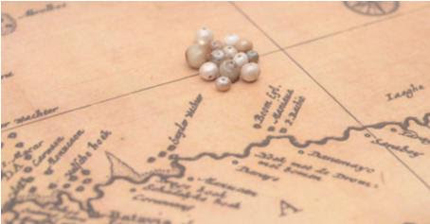This scientific method can provide the pearl industry with new valuable information about the age of loose pearls and pearls in jewellery.

The Swiss Gemmological Institute SSEF has become the first gem laboratory worldwide to introduce, as an additional service to clients, age dating of pearls using carbon-14 (14C). This scientific method can provide the pearl industry with new valuable information about the age of loose pearls and pearls in jewellery.
Age determination can support evidence of historic provenance in the case of antique jewellery and iconic natural pearls. It can also be used to identify fraud in cases where, for example, younger pearls are mounted in historical jewellery items, or have been treated so that they appear older than having been farmed during the 20th century. 14C age dating can be used to obtain evidence to support a decision whether a pearl is of natural or cultured formation. This is because methods to commercially cultivate pearls from certain mollusc species began only during the 20th century.
The oldest natural pearls examined using this method by SSEF were recovered in the famous Cirebon shipwreck off Java in Indonesia and were dated back to the turn of the first millennium (11th century).
Dr. Michael S. Krzemnicki, director of SSEF, announced "We are honoured to be able to offer this new service to the international pearl trade. It is an opportunity to document the provenance of unique and iconic natural pearls as well as further protecting the natural pearl trade."
The 14C research and services are offered in partnership with the Ion Beam Physics Laboratory at ETH Zurich, one of the world's leading universities.
Detailed information about the use of radiocarbon age dating on pearls can be found in a 2013 Radiocarbon journal article authored by Dr. Michael S. Krzemnicki (SSEF) and Dr. Irka Hajdas (ETHZ).
Be the first to comment